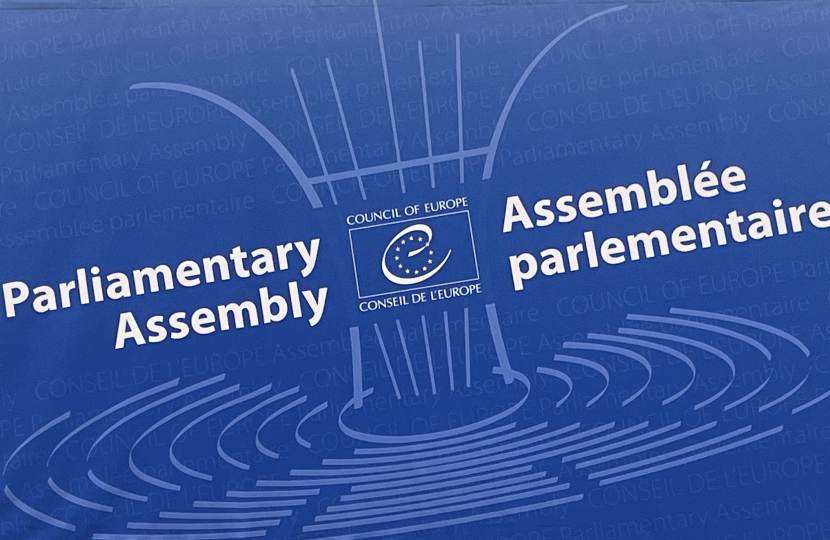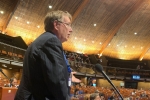
By special invitation John gave the keynote address at the first summer school at the University of Liverpool of the Open Council of Europe Academic Networks (OCEAN) which is exploring how the Council of Europe shows resilience in the face of crises.
The Liverpool Summer School is looking at the role that law plays within the Council of Europe’s internal and external response. The Council of Europe – which is separate to the European Union – contains 46 countries focused on human rights, democracy and the rule of law across Europe. John is the Leader of the UK Delegation to the Council of Europe, a group of 36 individuals from Parliament, who represent the UK in the plenary meetings which are held four times a year at the Council’s headquarters in Strasbourg.
John opened the session by saying how the worlds of 1949 when the Council of Europe was founded and today are similar and how the drive to multilateralism which was shown in 1949 is still as relevant today. He pointed to the presence of a barbaric war of aggression in Europe which touched almost everyone. He also pointed to how the extreme right was once again rampant across Europe and gaining strength.
John further commented on how institutions such as the Convention on Human Rights and the European Court of Human Rights were strong bulwarks against both of these and just as relevant now as they were in 1949. In addition, these were not European institutions but ones in which the UK had participated in their creation.
He said: “If we take the recent debate over how we deal with people traffickers, multilateralism provides the best answer. We cannot deal with the problem alone; after all, the recent tragic accident with refugees occurred off Greece, not in the English Channel. The Council of Europe is the obvious place to look for such assistance. Multilateralism is a shared responsibility for actions and their consequences. If we pursue common goals, no one loses. Individually we are weak. Together we are strong.
The deep expertise developed by the Council of Europe, through work with many governments, has affected issues such as protecting children’s rights (especially in Ukraine), gender equality, education, cybercrime, election observation, non-discrimination, the fight against racism and against intolerance and for minority protection.
John pointed out how the European Convention on Human Rights was part of international human rights law. He said that it did not matter whether the UK was a place where domestic or international law had precedence. The important element was “trust”, the absence of which meant that countries could no longer believe us when we signed an international treaty. He pointed out that only recently in Reykjavik, the UK had signed a document which stated that:
“We reaffirm our deep and abiding commitment to the European Convention on Human Rights and the European Court of Human Rights (ECtHR) as the ultimate guarantors of human rights across our continent, alongside our domestic democratic and judicial systems."
John asked: “Did we not mean this?”
He also pointed to the work which the Council of Europe was undertaking in relation to the war of aggression in Ukraine, the work to find and protect Ukrainian children who had been captured, AI and the environment.
Finally, John added: “The Council of Europe works to keep countries democratic because that is the best guarantee for collective democratic stability.”


